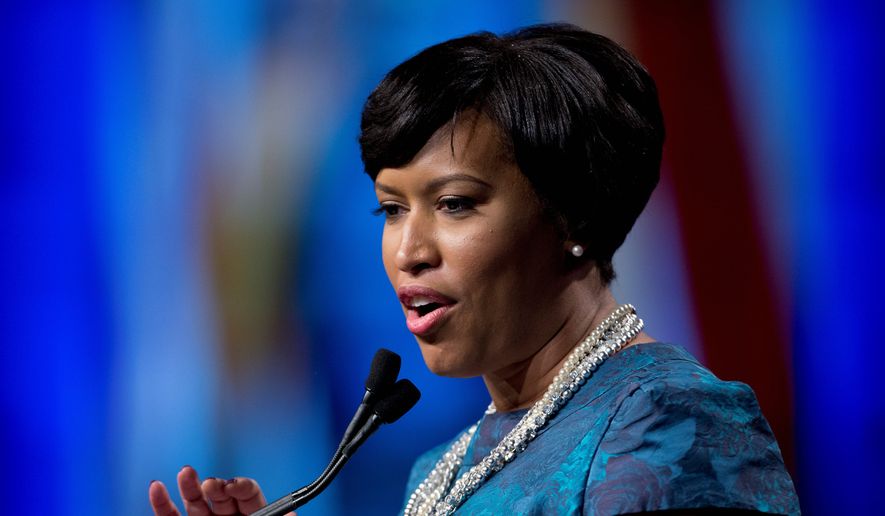D.C. utility regulators have struck down a $6.8 billion merger of the city’s electricity supplier with Exelon, a behemoth power generator based in Chicago, but the deal could go through if the two companies agree to several changes.
In a 2-1 vote Friday, the D.C. Public Service Commission (PSC) put a temporary halt to a merger between Pepco and Exelon, saying several elements of the $78 million deal are “not in the public interest.”
PSC Commissioner Joanne Doddy Fort then proposed changes that, if agreed to by both companies and city officials, would allow the deal to proceed. That measure passed in a 2-1 vote.
“I do not believe that the [agreement] is fatally flawed because each of the four concerns that the majority opinion has noted can be corrected by revising the [agreement] with alternative terms,” Ms. Fort said.
Under the plan brokered by Mayor Muriel Bowser, the companies would pay $25.6 million to the D.C. government, which would hold down residential electricity rates for four years. The city would use the money to create a Customer Investment Fund that would pay for work force training, energy assistance for low-income households and renewable energy projects such as solar and wind power generation.
The commission rejected that proposal over concerns about how the city would set aside money for the investment fund, how the District would use the fund to improve the power grid and pay for renewable energy, how Pepco would participate in producing solar energy and whether the PSC would be able to oversee the city’s use of the fund.
Under the Bowser plan, business ratepayers and the federal government would be unfairly called upon to subsidize residents’ rates, said the commission, which anticipates rising rates through 2019.
Ms. Fort suggested that Pepco and Exelon resubmit the plan with a provision that allows the PSC to allocate the funds, which would allow businesses and the government to reap benefits as well as residents. The companies have two weeks to notify the commission, and the merger will proceed only if Pepco and Exelon accept the changes.
A Pepco spokesman said the company is looking at the new proposal, but hasn’t decided whether to support it.
PSC Chairwoman Betty Ann Kane voted against the original and modified merger proposals, citing a conflict of interest in a power generator and a power supplier being in business together.
“The return of Pepco to an ownership structure that includes energy generation, supply, marketing and sales will result in an entanglement of management, financial health and decision-making,” Ms. Kane said. “This is a fatal flaw which will adversely affect Pepco and create a diversion of focus that carries it in the opposite direction from DC law and policy.”
Several opponents of the merger agreed with Ms. Kane, saying that the restrictions in the modified agreement do little to make the deal better for city residents.
“The four additional conditions that two of the three commissioners want are lipstick on a pig. These terms do not change the fact that this merger is a step backward,” said D.C. Council member Elissa Silverman, at-large independent. “It started as a bad deal, and it remains a bad deal.”
Council member Mary Cheh, who has been a vocal opponent of the deal, said the changes are so inconsequential that there’s little hope of defeating the agreement.
“It’s done. This deal is done,” said Ms. Cheh, Ward 3 Democrat. “We’re going to tie ourselves to a mammoth, money-losing company.”
Ms. Silverman urged Ms. Bowser to speak out against the new agreement, saying the city would have less oversight of the utility provider.
The commission in August outright rejected the Pepco-Exelon merger. Ms. Bowser and D.C. Attorney General Karl Racine helped craft the new deal presented Friday to the PSC on appeal.
Ms. Bowser was mum on whether the changes would force her to speak out against a deal she helped pull together.
“The Public Service Commission took the framework we negotiated and made adjustments,” said Ms. Bowser, a Democrat. “We will have to carefully review the commission’s order to determine if it meets our goals for ratepayers, especially residents.”
• Ryan M. McDermott can be reached at rmcdermott@washingtontimes.com.




Please read our comment policy before commenting.